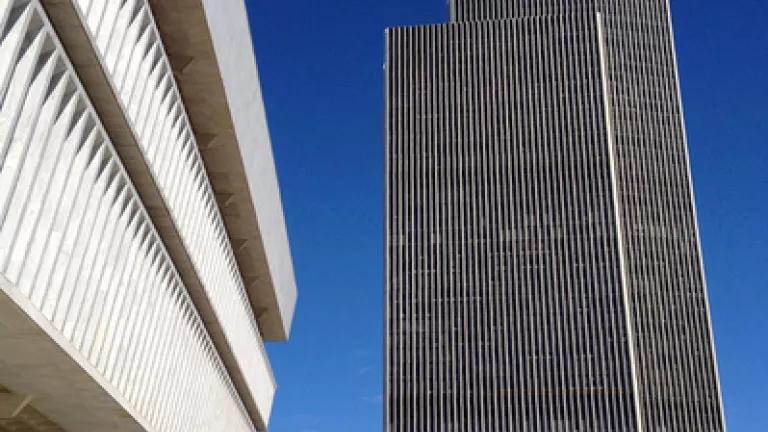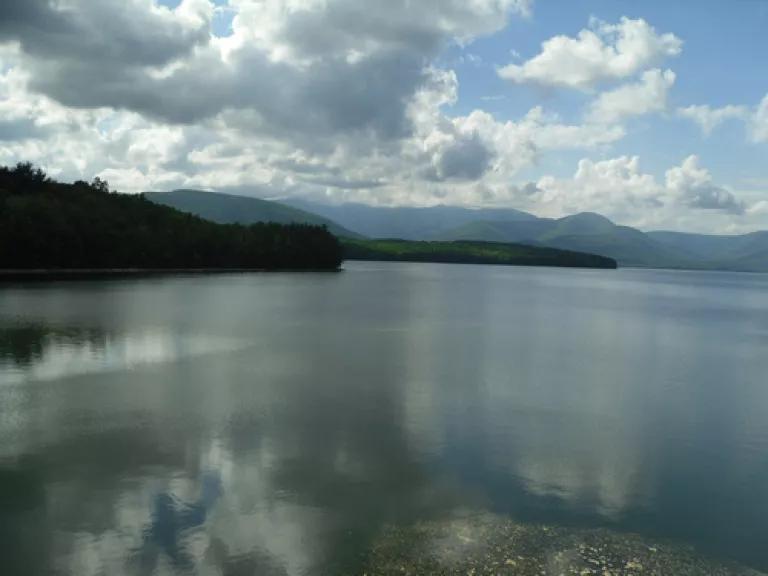New York State Health Department Review of NYC's Drinking Water Protection Plan Is Two Years Late

The New York State Health Department is two years behind schedule in its review of New York City’s federally required plan for safeguarding the nation’s largest municipal drinking water supply.
Action by the State Health Department is required so that New York City can secure a continuing waiver from having to construct filtration facilities for its upstate Catskill and Delaware water systems at an estimated capital cost of over 10 billion dollars. (In addition, the operating and energy costs for any such filtration facility, if it were build, are predicted to top 100 million dollars annually.)
NRDC has supported the city’s filtration waiver requests for the past two decades, viewing filtration avoidance as a cost-effective means of advancing pollution prevention and watershed protection. (As conditions for receiving filtration waivers under the federal Safe Drinking Water Act, a water provider must establish that its source waters are of high quality, that its tap water meets federal standards, and that it has put in place a comprehensive watershed protection plan.)
The New York State Health Department headquarters in Albany, where review of NYC’s watershed protection plan has been stalled for more than two years. Does the Department have the resources, commitment and enforcement personnel needed to safeguard the downstate drinking water supply?
New York City prepared its most recent draft watershed protection plan in December 2011, in the hope of securing assurance that its existing filtration waiver would continue through 2017. The city’s draft plan -- which usually forms the basis for a final filtration waiver -- was to have been reviewed and acted upon by the State Health Department during 2012, “so as to support the continuation of the [filtration waiver] into the Second Five-Year Period,” according to the U.S. Environmental Protection Agency.
But the state did not issue a draft filtration waiver for New York City until August 2013 -- more than 20 months after receiving the city’s draft plan. And it has been almost six months since November 2013 – when the public comment period on the state’s draft waiver ended.
As of today -- almost 28 months after the city prepared its draft filtration avoidance proposal -- the Health Department still hasn’t taken final action.
To be sure, New York City has been implementing its draft plan as if it were a final plan; the city’s existing filtration waiver has informally continued in force; and no direct public health impacts have resulted from the Health Department’s turtle-paced review.
Significantly, however, the delay has meant that possible enhancements to the city’s existing plan -- which might have already been implemented had the Health Department completed its review in timely fashion -- have not yet taken effect.
And the pending waiver only runs through 2017. Thus, the city will likely be operating under an approved, final plan for just two of years before it must reassess its performance and once again prepare proposed plan revisions and updates (for the next waiver request, which would cover 2017 to 2022).
In our comments on New York City’s draft plan, NRDC generally supported the revised plan elements proposed by the city, including an additional 50 million dollars for acquisition of vulnerable lands near our unfiltered reservoirs; a new initiative for voluntary buyouts of watershed properties located in dangerous flood zones, and expanded efforts to protect riparian buffer lands and to work cooperatively with watershed farmers and foresters.
But we also identified several additional items that we believe should be required as new conditions before the city’s filtration waiver is formally renewed.

The Ashokan Reservoir, in Ulster County, part of New York City’s unfiltered Catskill water supply. Turbidy poses a long-term threat, but the State Health Department has delayed acting on recommendations to order an independent expert study of the Catskill turbidity problem.
For example, we called for a comprehensive, independent review of the city’s ongoing program to combat turbidity in its Catskill reservoir system. Turbidity, or cloudiness, of Catskill reservoir source waters has been identified by the U.S. Environmental Protection Agency as the most significant long-term threat to the city’s water supply.
In our comments on the city’s draft plan, NRDC recommended that the City and State engage the appropriate experts at the National Academy of Sciences (NAS) to perform an independent review of the Catskill turbidity threat, assess the effectiveness of strategies implemented thus far, and recommend future actions that city, state and local watershed officials could take to reduce turbidity problem in the years to come.
Unfortunately, as a result of the State Health Department’s two year delay, no action on this NAS study recommendation has been taken.
Also in our comments on the city’s draft plan, NRDC questioned whether the State Health Department had sufficient resources and staffing to insure vigorous enforcement of the city’s watershed protection program and other safeguards required by the federal Safe Drinking Water Act. We urged the Health Department to take immediate action to buttress its enforcement, monitoring and compliance capabilities for overseeing protection of the downstate water supply.
(Additional suggestions for enhancing the city’s draft watershed protection plan were advanced by the U.S. Environmental Protection Agency, the State’s Department of Environmental Conservation and other environmental groups, including Riverkeeper.)
In view of the Health Department’s two year delay in reviewing and enhancing New York City’s draft filtration avoidance plan, we continue to doubt that this agency as presently staffed is able to fully perform the duties required of it under the Safe Drinking Water Act – at least with respect to the Catskill and Delaware system water supplies.
New York City is one of only five large municipalities in the United States that has secured federal Safe Drinking Water Act filtration waivers over the past two decades, thanks to the high quality of the water in the city’s Catskill and Delaware system reservoirs – the primary source of drinking water for more than 9 million downstate New Yorkers. (The other big cities that have received waivers from the filtration requirement are Seattle, Portland, San Francisco and Boston.)
It would indeed be a shame if this priceless and irreplaceable water supply were placed in jeopardy as a result of lack of resources and enforcement staff at the State Health Department.
Now is the time, before it’s too late, for the Health Department to call for reinforcements.
